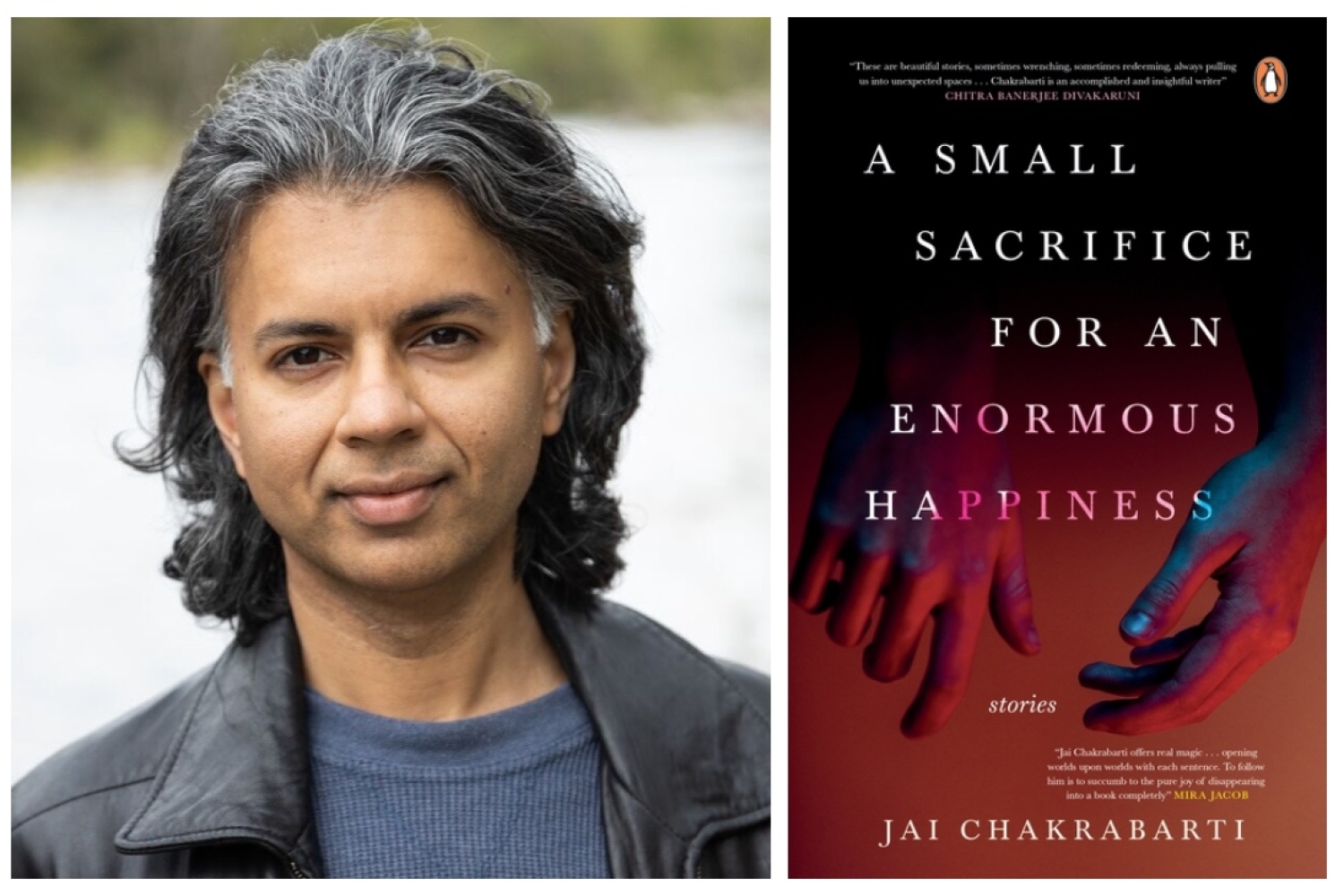

A Small Sacrifice For An Enormous Happiness, by Jai Chakrabarti, is an anthology of short stories, each of which captures the intricacies of human emotions, identities and uncertainties. They delve into our collective tendency to let conflict and flaw overrule us, and pull on the strings of our hearts in the process. Many narratives involve the lives of immigrants, and Jai’s slow-burning, emotionally-driven storytelling helps spotlight the whims and quirks of each character. Whether writing about obsessive mothers who can’t help but micromanage their sons lives, or the misfortunes of an American disciple of an Indian mystic, or a young babysitter doused in homesickness in Brooklyn, the author manages to capture it all through writing that is immersive. Global differences in culture and family upbringing pervade these stories in both subtle and powerful ways. We’re in conversation with Jai himself, as he gives us some insight into the creation of his book.
What about the form of a short story appeals to you?
I love how great short stories can capture characters in their most vulnerable moments, as they’re facing life-altering decisions, or simply as they are, day to day. There’s an incredible versatility and range to the short story — for me, the ones that I love the most involve characters who’ve gone on an emotional journey that feels meaningful. For instance, the last story in my collection, The Fortunes of Others, was inspired by Tagore’s Kabuliwallah In Tagore’s story, a father’s perception of an Afghani merchant is transformed, and in perhaps subtle ways he is changed by that interaction.
What stands at the core of this collection?
A Small Sacrifice For An Enormous Happiness explores familial relationships across many dimensions. In the title story, a gay man in 1980s Kolkata concocts a plan to have a child with his lover, while in another an Indian woman living in America builds a plane using the diagrams of an ancient mathematician in an effort to recapture the attention of her husband. Across all of these stories, I’ve wrestled with notions of what family means, what our relationships afford us, and how in this cultural moment we might wade through complexity and find our sense of togetherness.
Many of these stories cross lines in terms of countries and culture. What did your process of understanding these various identities and their struggles look like?
I think the process of writing fiction is inherently a process of crossing lines from ourselves to others. To write about another character, we have to imagine them in a way that honours who they are, including their ethnic, cultural, religious, sexual, and other histories. If I think I can’t inhabit a character honestly, considering these and other dimensions, I’ll not write about them. What I’ll often come to are characters who are grounded in the same worlds in which I myself have lived. For instance, my partner is Jewish, from California, and sometimes I write about experiences I’ve had through the New York or California Jewish community. Just so, I’ll write about Kolkata, or other parts of India where I’ve spent enough time to get to know people.
Family and belonging are also quite centric to most stories in the novel. Where did the inspiration for that come from?
I was born and spent my early childhood in Kolkata, India, and even after emigrating to America, we’d return each summer for three months. In some ways, I can say I had a “dual upbringing”, at times even a confusion about what “home” is. I think that experience of being an immigrant, of being between two worlds, can sharpen the need for belonging, at least it did for me, and the way I explored that was through these stories. These characters are trying to find a sense of family and belonging in ways not so dissimilar from how I have.
What is one piece of advice you would give to someone writing a short story for the first time?
Really get to know your characters. While plot and other elements are certainly important, I think your understanding of the characters will make or break the story. I suggest finding them off the page, asking them questions, getting to know both your major and minor characters as if they were good friends.
Lastly, what are you working on next?
I’m working on a new novel. It’s still in the early draft stage, so I can’t talk about it too much yet, though I’m excited for the possibilities and hope to share more soon.
Words Neeraja Srinivasan
Date 10-08-2023